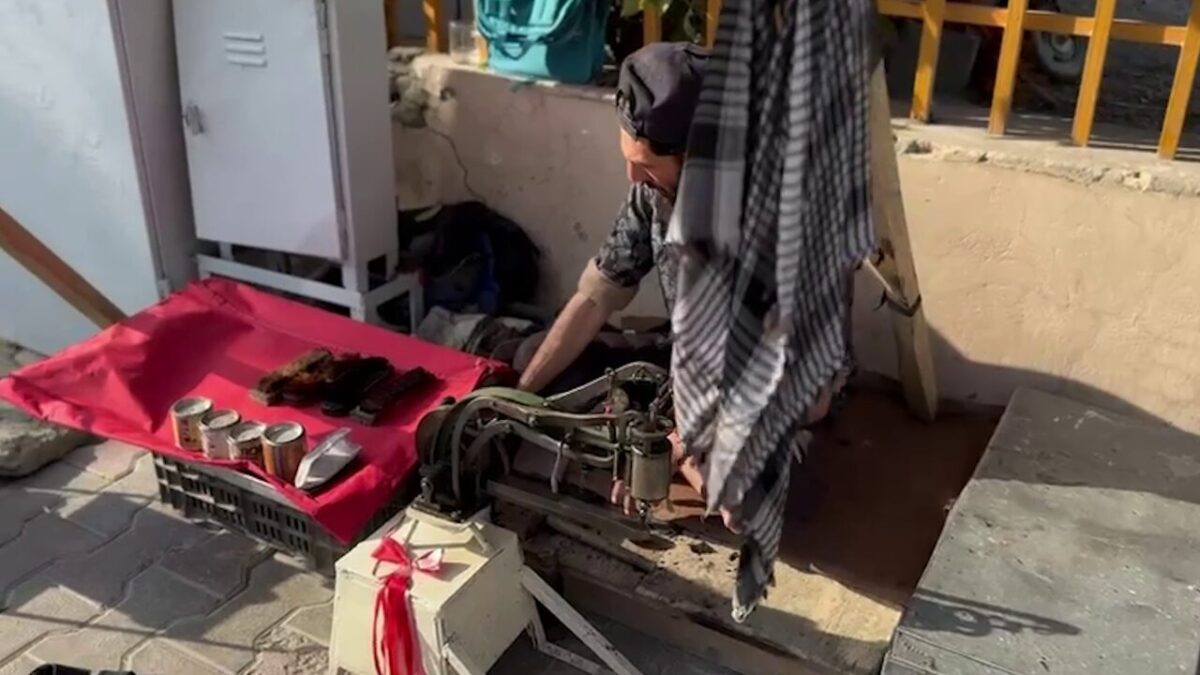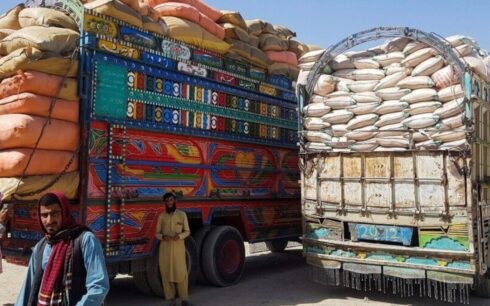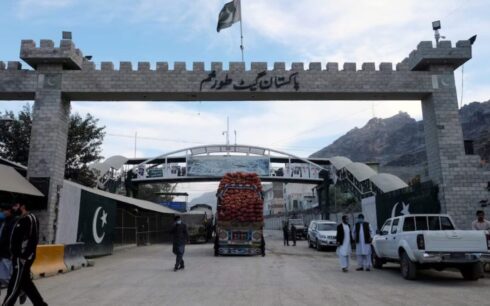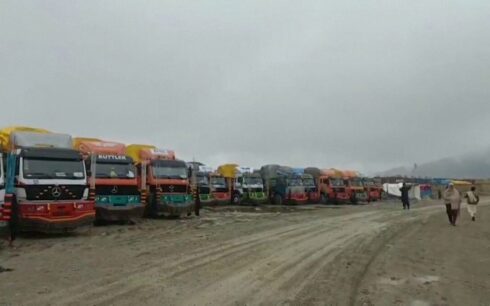Taliban have issued an order instructing all street vendors and stall owners in Kabul to remove their goods, as part of a broader effort to “clean up” the city, according to the Taliban-controlled Kabul municipality.
The municipality claims the move is aimed at restoring order in the capital’s streets, but vendors are expressing frustration, saying they have been forcibly removed from their stalls and now face unemployment. Many warn that the Taliban’s actions are leaving hundreds without a livelihood.
Street vendors argue that the crackdown will have devastating economic consequences for those who rely on their small businesses for survival.
“We are doing this to clear the city and organize the streets,” said Nematullah Barakzai, a spokesperson for the Kabul municipality under the Taliban administration. “The municipality is systematically removing individuals who are selling goods in areas where they should not be.”
One of the affected vendors, Ahmad, who had operated a shoe-repair stall for three years at Kabul’s Saderat intersection, said the Taliban closed his business last week. He has since relocated his shoe repair work to another part of the city. Despite the setback, Ahmad remains determined to support his family of four.
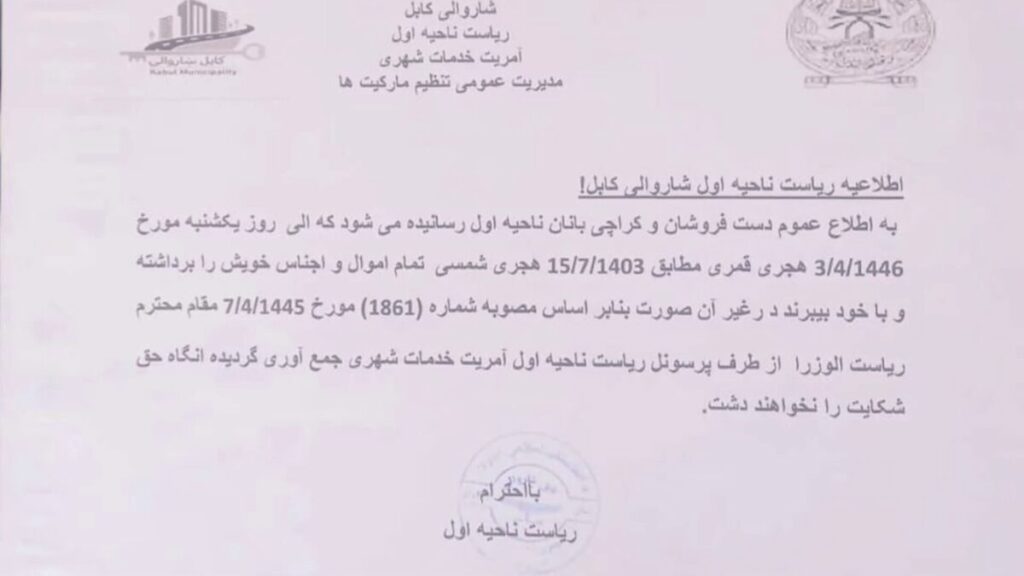
“The Taliban took my stall, but I have no choice but to keep working to support my family,” Ahmad said. “Winter is coming, and we can’t afford basic necessities. We need firewood, and I can barely make enough to feed my family.”
Other vendors echoed Ahmad’s concerns, urging the Taliban not to prioritize the city’s aesthetics over people’s livelihoods.
“The winter is approaching, and there’s no work,” said Jamil, another street vendor. “Now they’ve taken away the only place where I could earn a little to feed my family.”
The Taliban’s actions come as Afghanistan faces severe economic challenges. According to a recent report from the Global Poverty Index, two-thirds of Afghans are living in poverty, with children making up a significant portion of the impoverished population—three out of every five poor Afghans are under the age of 18.

